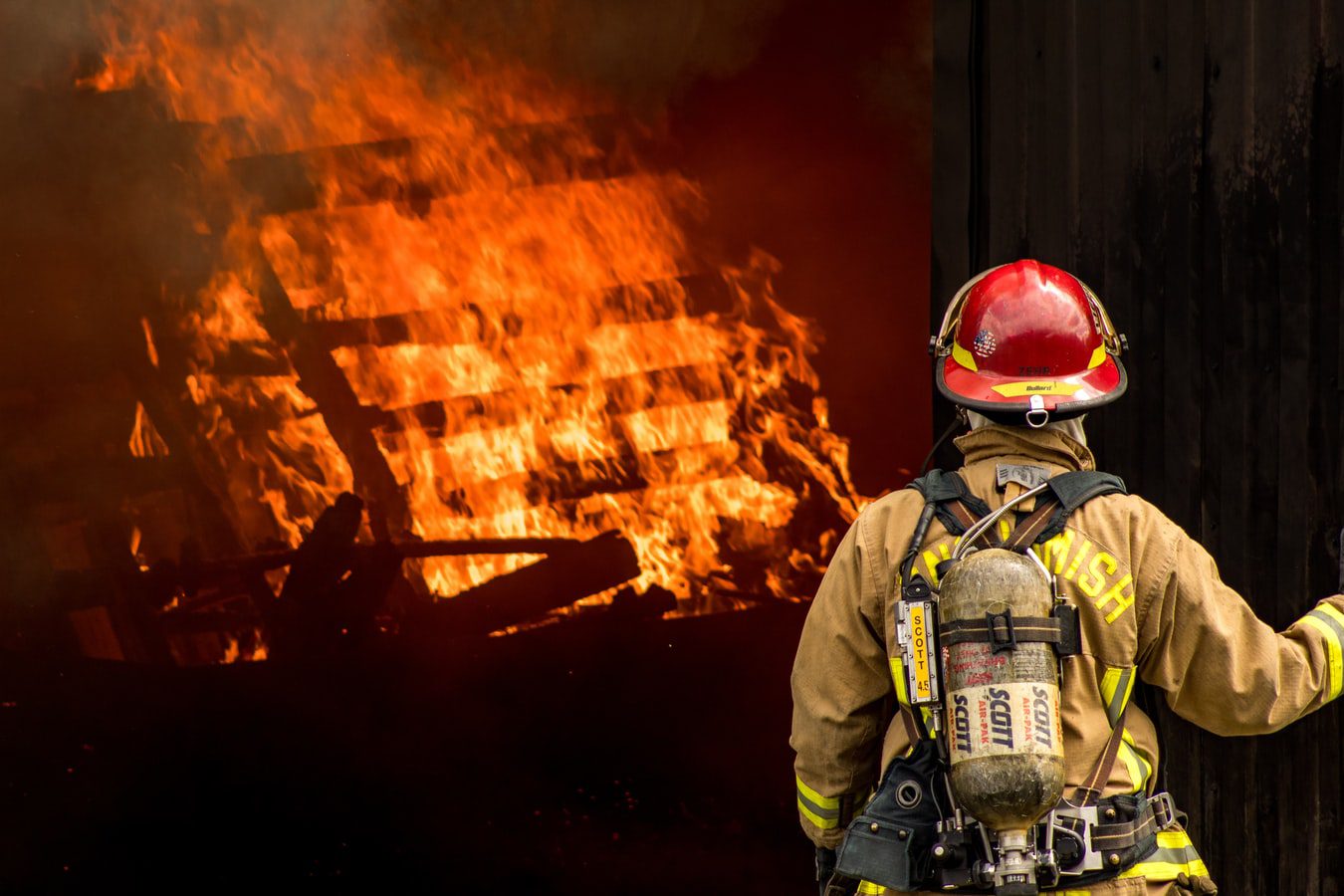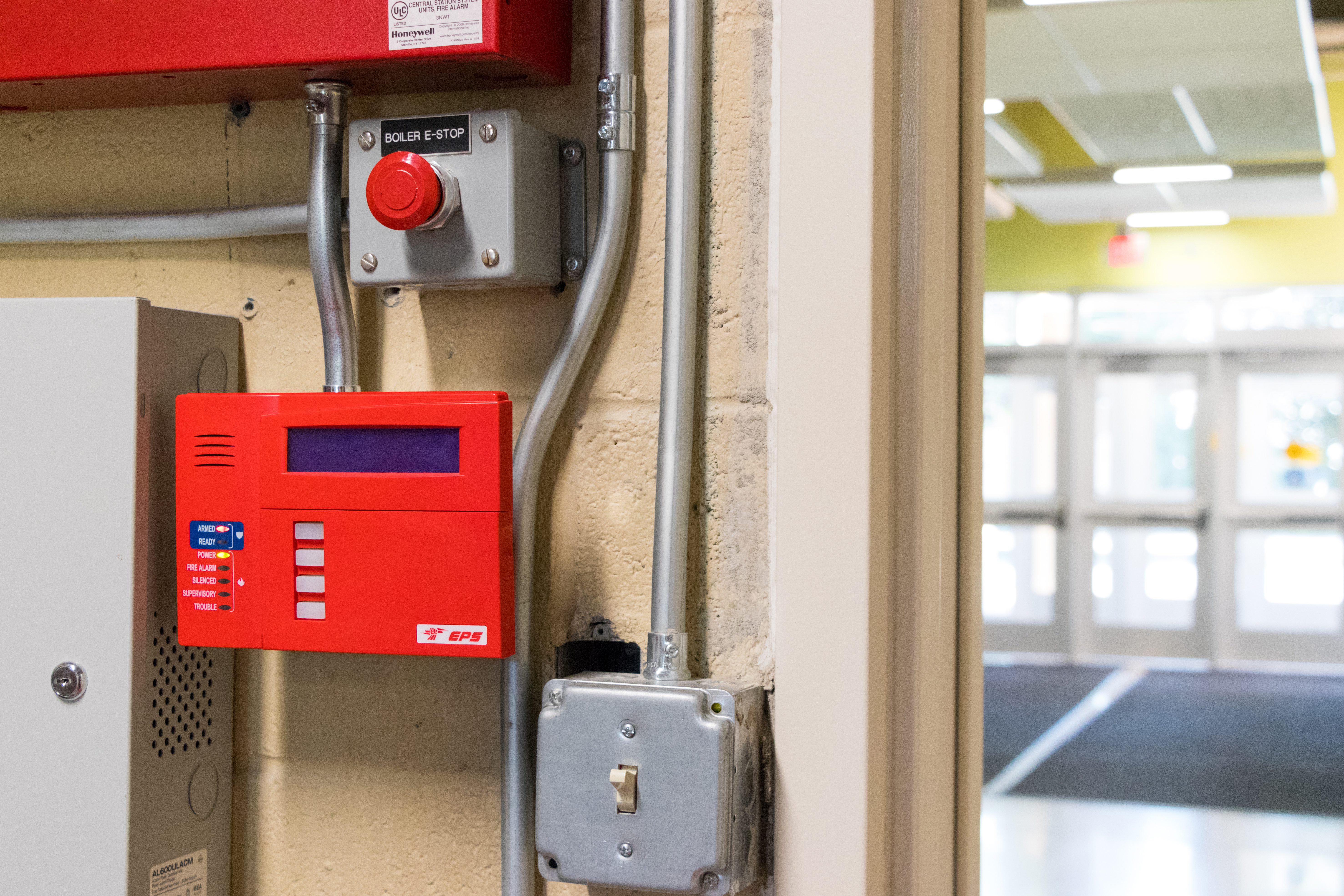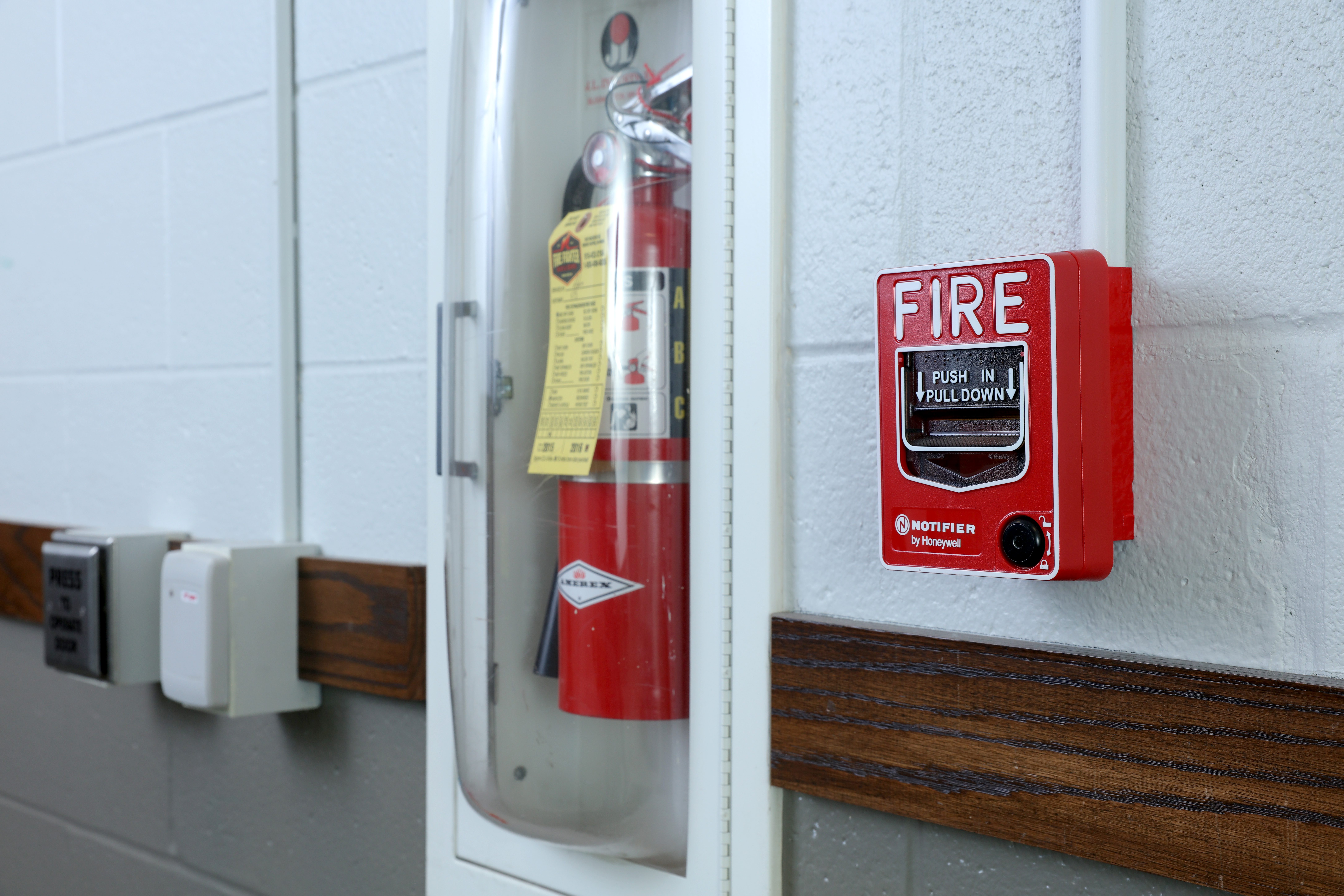
 If you have a business, odds are you have a functioning fire alarm system. Even if commercial fire alarm systems weren’t required by law, having a detection system throughout your facility is a crucial component of workplace safety by protecting your property, inventory, and employees. Studies estimate nearly 100 people die and 1,200 more are injured each year in business fires. Additionally, a whopping 2.4 billion dollars in damage is attributed annually to fires on commercial properties. Fires are so costly in terms of human life and property damage that some businesses that experience a fire never recover.
If you have a business, odds are you have a functioning fire alarm system. Even if commercial fire alarm systems weren’t required by law, having a detection system throughout your facility is a crucial component of workplace safety by protecting your property, inventory, and employees. Studies estimate nearly 100 people die and 1,200 more are injured each year in business fires. Additionally, a whopping 2.4 billion dollars in damage is attributed annually to fires on commercial properties. Fires are so costly in terms of human life and property damage that some businesses that experience a fire never recover.
Because fire alarm systems are required per building code, many business owners and property managers are familiar with the visible components of fire alarm—the hand pulls, the sirens, the smoke detectors, and the like. However, unless you’ve been unlucky enough to experience a workplace fire firsthand, many people are unfamiliar with exactly how their fire alarm system functions during an emergency. Understanding exactly how your fire alarm system functions—and how your local monitoring center dispatches emergency services in such circumstances—can help you develop better emergency procedures for your business in addition to providing you with the peace of mind that accompanies monitored fire alarm protection.
 How does my fire alarm system work?
How does my fire alarm system work?
A fire alarm system can essentially be broken into two parts categories of devices—the head end and the field equipment. The field equipment includes devices such as smoke and carbon monoxide detectors, heat detectors, and hand pulls that are meant to trigger an alarm signal back to the alarm control panel or alert people to an active alarm. The alarm control panel—the “brains” of the system–is a piece of head end equipment where triggered alarm signals are collected, processed, and dispatched out to a designated monitoring center. Both the head end and the field devices work in tandem to detect early signs of fire and dispatch the signal as urgently as possible.
For decades, most fire alarm systems have utilized horns and strobes to notify tenants and employees of an active fire alarm. These field devices are mounted throughout the facility to notify occupants via either sirens or flashing lights to an emergency. The location and visibility/audibility of these devices is dictated by fire code, which states that a person should be able to hear and see an alarm notification regardless of their location within the building. Recent years have seen a shift to voice evacuation fire alarm systems, where audio amplifiers and speakers are used instead of horns to notify occupants of the need to evacuate the premise. Voice evacuation has become popular in part because fire code dictates that certain commercial properties must use the systems, but also because it can be programmed to transmit specific evacuation procedures and let occupants know that the emergency is valid and not just a drill.
While notification devices inside a building are essential for the protection of employees, horns, strobes, and voice evacuation equipment can’t save your actual property and inventory. For comprehensive protection (and to abide by fire code!), your fire alarm system must include professional 24/7 monitoring to ensure proper alarm signal dispatch.
A ticking clock: the importance of expedient fire alarm dispatch
Once an alarm signal is received by the fire alarm panel, the signal is transmitted to the designated monitoring center. How exactly the signal is sent depends on the kind of system you have. If your fire alarm system is still set to communicate through a copper phone line, the signal is transmitted via that line. More recently, advances in alarm communication technology have allowed for the creation of fire-rated cellular communicators. These devices receive the alarm signal from the control panel and transmit it through radio signals to nearby cellular towers, which retransmits the signal to the designated monitoring center.
Regardless of what setup you have, your fire alarm system will send the signal to the appropriate monitoring center. A monitoring center is a hub of alarm signal communication, receiving emergency alarm signals in addition to other notifications such as low batteries, communication issues, and more. Trained monitoring operators act on every signal that comes through. Less urgent signals may require a simple phone call to the alarm system’s owner, notifying them of a minor issue with a certain device. However, in the case of fire alarm signals, a call is placed immediately to the fire department in the jurisdiction of the system in question for optimal response times. For instance, if a smoke detector goes off in your business, your system will alert the monitoring center, whose operator will immediately call emergency services to notify them of a possible fire.
The benefits of a well-monitored fire alarm system are numerous. Fire alarms are monitored 24/7 and do not need to be set, meaning if a fire breaks out after hours, emergency services will still be dispatched. While most fires occur during normal business hours, most of the damage caused by fires happens after hours or on the weekends when there is no one onsite to put it in check. Additionally, the differentiation between urgent fire alarm signals and other signals allows for the immediate dispatch of the fire department, minimizing the time it takes to mobilize emergency units and maximizing fire containment measures.
 The EPS Advantage
The EPS Advantage
Alarm monitoring is a critical component of any fire system, so your monitoring center needs to deliver excellent service to keep your people and property safe. EPS Security’s Monitoring Center is unparalleled in its commitment to excellence. Our Monitoring Center is situated right in Grand Rapids—not outsourced to third parties like those of many other companies, allowing for quicker dispatch and closer relationships with local fire departments. Our Monitoring Center staffed 24/7 by operators who take continuous training to deliver an optimum experience for our customers. The Monitoring Association, an internationally recognized trade organization for professional monitoring centers, has awarded the EPS Monitoring Center with a Five Diamond certification, a label given to monitoring centers who adhere to lofty standards including inspections, customer service training, and more. Our Monitoring Center is one of only a handful across the country that is Five Diamond certified and Factory Mutual (FM) and Underwriter’s Laboratory (UL) approved, a further indication of our commitment to excellence in alarm dispatch. Moreover, the EPS Monitoring Center has won an award for its efforts to reduce false dispatches, helping both our customers and local fire departments in alleviating the burdens of false alarms.
The professionalism, expediency, and accuracy of fire alarm signal dispatch can be a literal life-or-death matter. Don’t gamble on the safety of your business. Trust in a business with 65 years of experience in the design, installation, servicing, and monitoring of commercial security systems. Let EPS Security show you the peace of mind comprehensive fire alarm system monitoring can bring.

